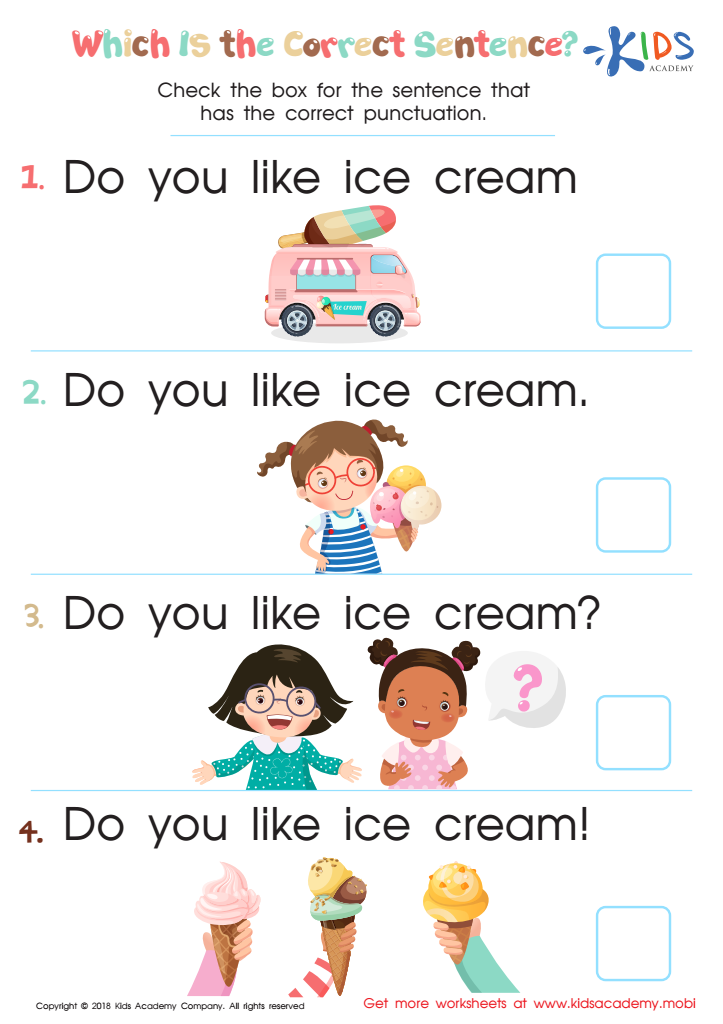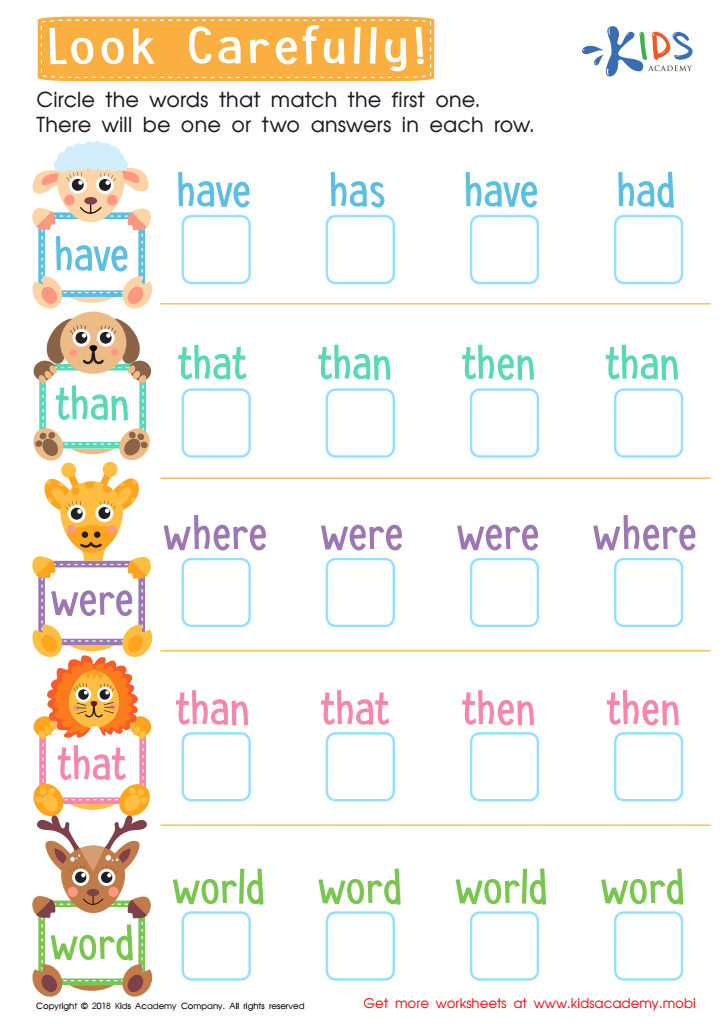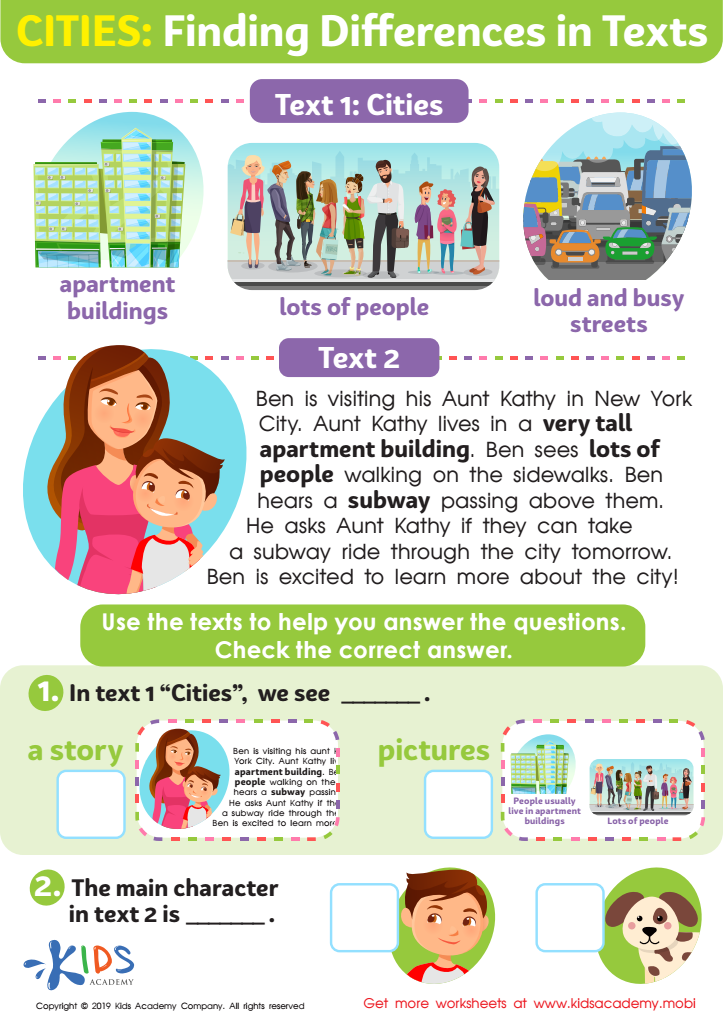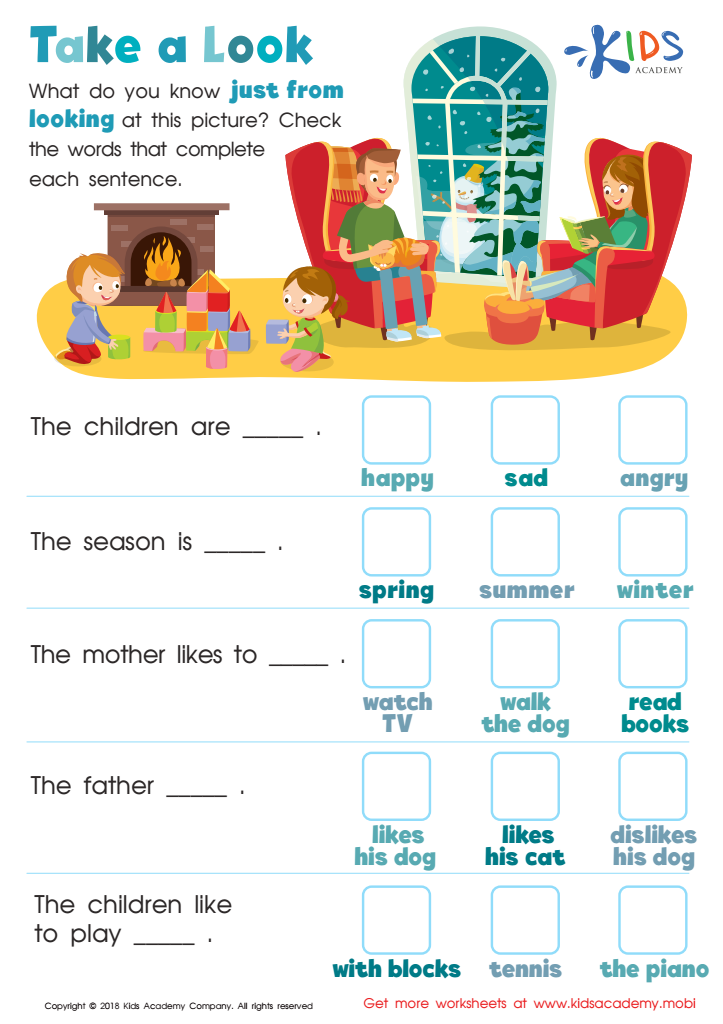Attention to Detail Reading Comprehension Worksheets for Ages 3-6
4 filtered results
-
From - To
Enhance your child’s reading journey with our "Attention to Detail Reading Comprehension Worksheets" designed for ages 3-6. These expertly crafted worksheets boost early learning by promoting focus, retention, and understanding. Through engaging, age-appropriate activities, children will practice identifying key details and answering comprehension questions, fostering essential literacy skills. Ideal for both classroom and home use, our worksheets support children's cognitive development while making learning enjoyable. Help your child master reading comprehension with our fun and educational worksheets. Available for download now!


Which is the Correct Sentence? Worksheet


Look Carefully Worksheet


Cities: Finding Differences Worksheet


Take a Look - Part 1 Worksheet
Attention to detail in reading comprehension is crucial for children aged 3-6 because it lays a foundational bedrock for their future learning. At this developmental stage, kids are forming essential cognitive skills, such as recognizing patterns, deriving meaning from texts, and making logical connections. When parents and teachers emphasize attention to detail, they help children engage more thoroughly with the material, developing better focus and retention capabilities.
Moreover, close attention to details in reading encourages critical thinking. Young children learn to notice nuances, such as differences between characters, plot elements, and various emotions or themes. This level of engagement not only enhances their understanding of the text but also fosters empathy and critical analysis skills, which are applicable later in life.
Attention to detail also directly impacts literacy and academic performance. If a child can distinguish between similar-looking words, understand punctuation, and grasp sentence structures, they are more likely to become proficient in reading and writing. This early proficiency contributes significantly to success in all academic subjects.
Lastly, nurturing these skills fosters a love for reading by making stories and information more accessible and enjoyable. When children feel confident in their reading abilities, they are more likely to develop into lifelong learners, enabling them to better navigate and understand the world around them.
 Assign to My Students
Assign to My Students






.jpg)













